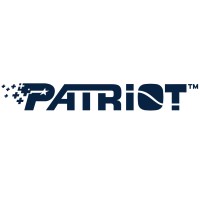
Patriot Memory, Inc
Patriot designs, manufactures and markets high performance, enthusiast memory modules, flash products, and mobile accessories. Patriot products have become world renown for their extreme performance, reliability and innovation. Patriot sells its products through original equipment manufacturers, retailers, e-tailers and distributors throughout the world with operations in North America, Asia and Europe. Patriot Memory LLC was founded in 1985 and is headquartered in Fremont, California, USA.






